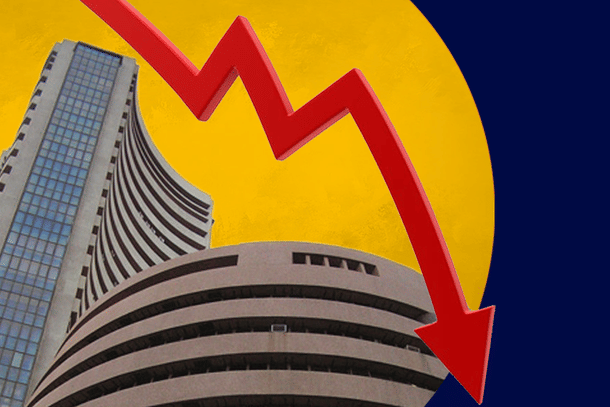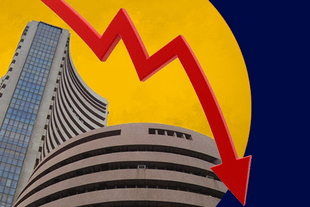Economy
Debt Isn’t Always Safe: Six Lessons To Learn From Closure Of Six Templeton MFs
R Jagannathan
Apr 28, 2020, 12:32 PM | Updated 03:45 PM IST
Save & read from anywhere!
Bookmark stories for easy access on any device or the Swarajya app.


A few days ago, Franklin Templeton Mutual Fund shocked investors by closing six debt or credit risk-related funds with effect from 23 April. The move implied that these schemes would not accept new subscriptions or redeem the balances at their respective net asset values. The reason given was that the funds could not sell a lot of its illiquid investments fast enough, and at air prices, to meet redemption demands.
This move, which triggered panic among investors and banks due to fears of similar closures of other vulnerable debt funds, prompted the Reserve Bank of India (RBI) to offer a special Rs 50,000 crore line of credit to ease liquidity pressures on mutual funds.
The funds that have been closed are Franklin India Low Duration Fund, Franklin India Dynamic Accrual Fund, Franklin India Credit Risk Fund, Franklin India Short Term Income Plan, Franklin India Ultra Short Bond Fund and Franklin India Income Opportunities Fund.
Investors need not panic, for it is by no means certain that they have lost significant chunks of their money. What the fund has said is that it will repay investors as and when it can liquidate or unwind investments without serious loss of value. This means most of the money may indeed come back to investors, but in a staggered fashion, and in bits and lumps.
Investors should also know that closure is actually a good thing, though it does affect their short-term income flows. Reason: if the funds had liquidated their investments on adverse terms, that is by accepting substantial discounts to their real asset values, investors would have lost much more.
There are lessons for investors, regulators and fund managers to learn from this event.
For investors, the three lessons are the following.
One, debt and debt-related securities are not risk-free. Most investors realise the equity prices can rise or fall, but they don’t fully accept that debt prices too can rise or fall. When rates rise, bond prices fall and vice-versa. This means debt net asset values can rise or fall depending on interest rate movements, credit risks, and liquidity challenges.
If you had invested Rs 1 lakh in debt funds when market interest rates were 4 per cent, and rates subsequently rise, the value of your fund falls as bond prices fall to compensate for the need to equalise market yields.
Conversely, in a falling interest-rate scenario, your mutual fund will see a rise in net asset values.
Two, if you cannot afford to see a diminution of your capital, the only real avenues for you are bank fixed deposits with large public sector banks like State Bank of India or Bank of Baroda, and super-solid private banks like HDFC Bank or Kotak Mahindra.
The other equally good options are post office savings schemes and certificates, and capital protection schemes of mutual funds. Mutual fund debt schemes are best for those with a slightly higher risk appetite, especially in uncertain times like the ones at present.
Three, the ideal thing to do for investors with some risk appetite is to diversify among asset classes: keep the bulk of your savings in safe avenues, some amounts in debt funds, some in equity funds, and the balance in gold.
Real estate is not an investment for ordinary people. If you have the money to buy a house, buy it because you want your family to live there. Don’t buy with the expectation that you will make a killing from rising property values. Property prices have not moved for years now.
For mutual funds and fund regulators, there are three more lessons to learn.
First, there may be a need to revisit the guidelines for redemptions. Reason: if some non-Triple A rated bonds are illiquid, fund managers need more time to sell them. Currently, funds are allowed upto 10 days to pay up redemption requests.
However, the real issue here is big investors versus small, not just normal times versus Covid-19 times. When big investors redeem, say, Rs 100 crore, the liquidity problems are greater than when small investors seek to sell, say, Rs 1 lakh worth of fund units. The former is destabilising, the latter is less so.
This means guidelines for the treatment of large investors can be different from those for small retail investors. This is as true for other mutual fund products, too, and not just the ones that went kaput at Franklin Templeton.
Even equity funds can be destabilised when large or high net worth investors suddenly seek large redemptions or invest huge amounts at one go. Securities and Exchange Board of India (SEBI) should find a way to protect retail investors better than now.
Second, SEBI may need to work out new norms for the balance between differently rated papers that a debt fund can own, and the balance between cash and cash-like instruments and less liquid instruments. This is something all fund managers ought to be doing themselves, but in the chase for higher returns, basic balancing of risks and rewards go for a toss.
Third, SEBI should also suggest new norms for fund management fees, and also when fund managers can be paid high or low bonuses. Right now, the alignment between long-term fund success and fund managers’ annual payouts are not well aligned.
All in all, investors, fund managers and regulators have much to introspect about what they should do in future.
Jagannathan is former Editorial Director, Swarajya. He tweets at @TheJaggi.





